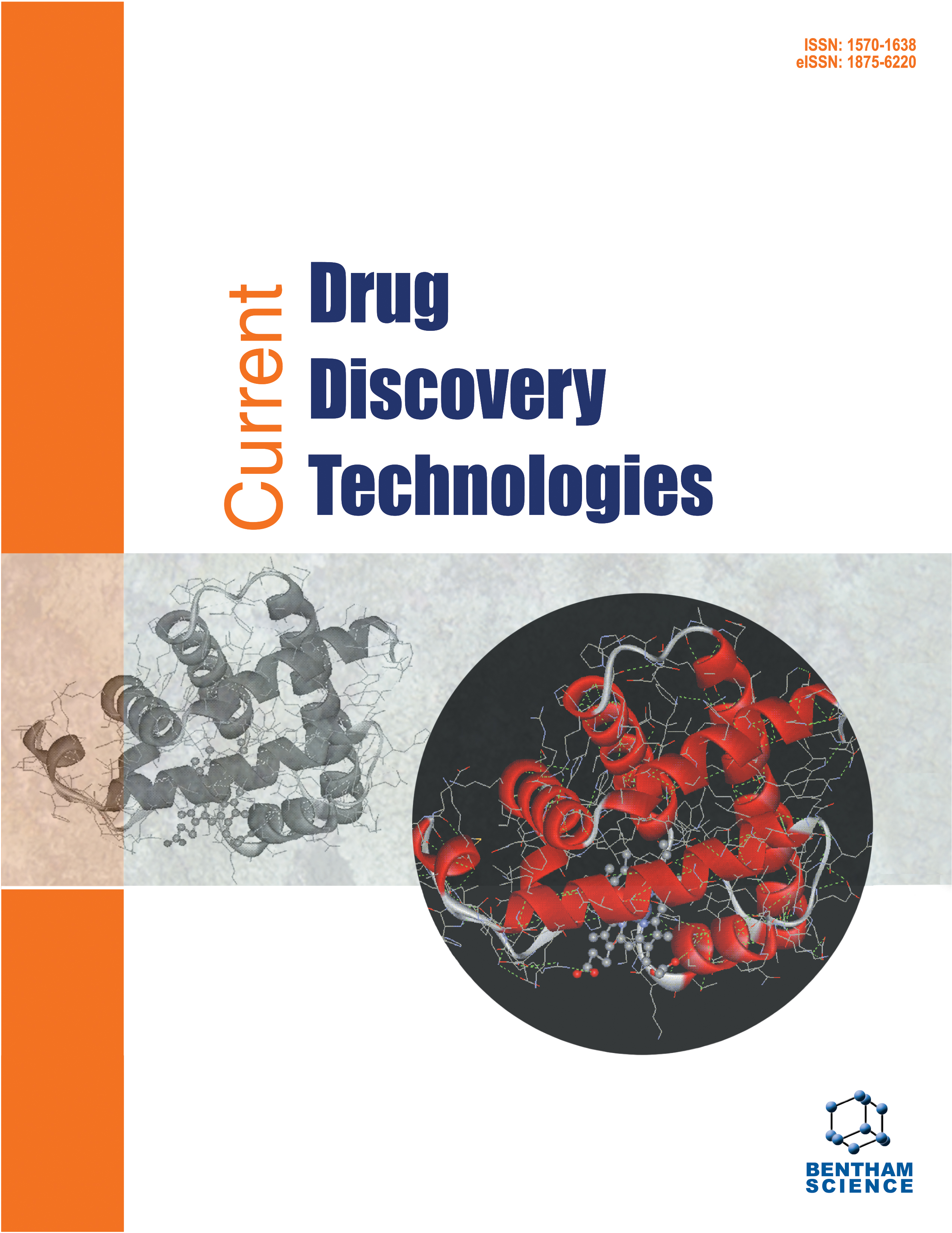- Home
- A-Z Publications
- Current Drug Discovery Technologies
- Previous Issues
- Volume 1, Issue 4, 2004
Current Drug Discovery Technologies - Volume 1, Issue 4, 2004
Volume 1, Issue 4, 2004
-
-
Assessment of the Health Effects of Chemicals in Humans: II. Construction of an Adverse Effects Database for QSAR Modeling
More LessAuthors: Edwin J. Matthews, Naomi L. Kruhlak, James L. Weaver, R. D. Benz and Joseph F. ContreraThe FDA's Spontaneous Reporting System (SRS) database contains over 1.5 million adverse drug reaction (ADR) reports for 8620 drugs / biologics that are listed for 1191 Coding Symbols for Thesaurus of Adverse Reaction (COSTAR) terms of adverse effects. We have linked the trade names of the drugs to 1861 generic names and retrieved molecular structures for each chemical to obtain a set of 1515 organic chemicals that a Read More
-
-
-
Present Status and Future Prospects of Chemotherapeutics for Intractable Infections due to Mycobacterium avium Complex
More LessMycobacterium avium-intracellulare complex (MAC) infections are frequently encountered in immunocompromised hosts, especially AIDS patients, although nodular-bronchiectasis type MAC infections without predisposing conditions are steadily increasing, particularly in Japan. Clinical control of MAC infection is difficult, since it responds poorly to available antimycobacterial regimens because of the intrinsic resistance of MAC org Read More
-
-
-
Microdialysis in Drug Discovery
More LessAuthors: Christian Hocht, Javier A.W. Opezzo and Carlos A. TairaMicrodialysis has been developed during the last 25 years by several authors primarily to study brain function and changes in levels of endogenous compounds such as neurotransmitters or metabolites. The development of microdialysis for the purpose of measuring drugs was initiated during the late eighties. This technique provides a means of continuous plasma sampling without repeated blood sampling and the applicability Read More
-
-
-
The Role of Atelocollagen-Based Cell Transfection Array in High- Throughput Screening of Gene Functions and in Drug Discovery
More LessAuthors: Kimi Honma, Teruo Miyata and Takahiro OchiyaThe human genome project has been completed, but the function of many genes is unknown. It is, therefore, necessary to elucidate the function of a large number of genes within a short time. To achieve this goal, materials are needed that condense or package DNA into nano-particles that can easily be taken up by cells and would allow DNA to be retained without degradation. Atelocollagen is a reliable carrier for gene delivery Read More
-
-
-
Mass Spectrometry in Drug Discovery: A Current Review
More LessBy Wan Y. FengDrug discovery in the pharmaceutical industry has shown great demands for screening absorption, distribution, metabolism, excretion (ADME) and pharmacokinetics (PK) in guiding the selection of lead candidate compounds. Determination of ADME/PK properties of new chemical entities (NCE) in early drug discovery should allow defects to be corrected prior to time-consuming and expensive preclinical and clinical development Read More
-
Volumes & issues
-
Volume 22 (2025)
-
Volume 21 (2024)
-
Volume 20 (2023)
-
Volume 19 (2022)
-
Volume 18 (2021)
-
Volume 17 (2020)
-
Volume 16 (2019)
-
Volume 15 (2018)
-
Volume 14 (2017)
-
Volume 13 (2016)
-
Volume 12 (2015)
-
Volume 11 (2014)
-
Volume 10 (2013)
-
Volume 9 (2012)
-
Volume 8 (2011)
-
Volume 7 (2010)
-
Volume 6 (2009)
-
Volume 5 (2008)
-
Volume 4 (2007)
-
Volume 3 (2006)
-
Volume 2 (2005)
-
Volume 1 (2004)
Most Read This Month
Article
content/journals/cddt
Journal
10
5
false
en


